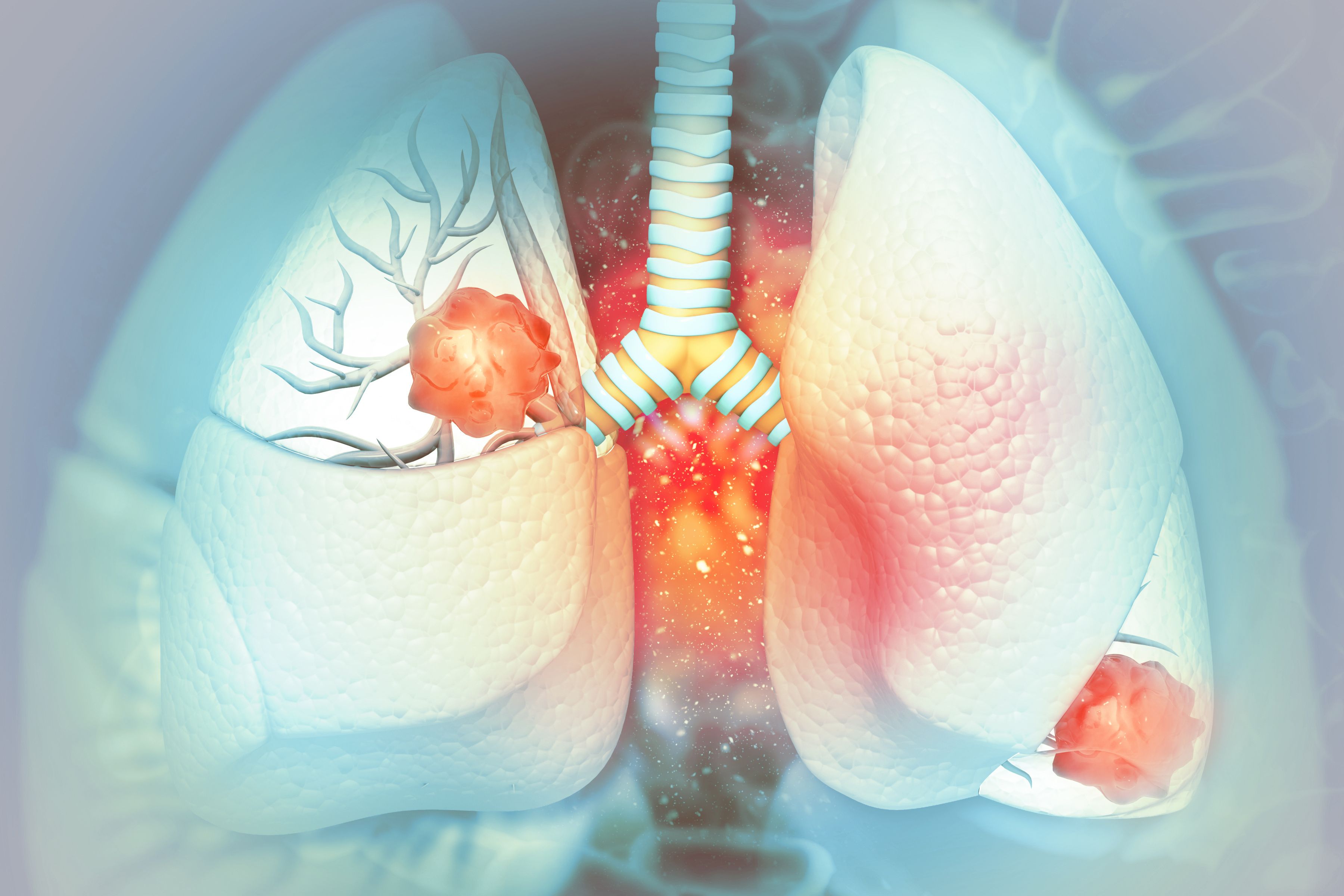THIO Plus Cemiplimab Shows Promise in Non-Small Cell Lung Cancer
Third-line combination of THIO and cemiplimab improved overall response rate compared with standard of care in patients with non-small cell lung cancer.
Lung Cancer: © Crystal Light - stock.adobe.com

The combination of THIO (6-thio-2’-deoxyguanosine) plus the immune checkpoint inhibitor cemiplimab (Libtayo) in the third-line demonstrated positive efficacy findings in patients with advanced non-small cell lung cancer (NSCLC), according to findings from the phase 2 THIO-101 trial (NCT05208944).1
THIO, an investigational telomere-targeting agent, plus cemiplimab had an overall response rate (ORR) of 38% (n = 3) among patients with advanced NSCLC who had failed prior treatment with immune checkpoint inhibitors with or without chemotherapy. This exceeds the ORR seen with the standard of care in patients without a targetable mutation, according to MAIA Biotechnology, the manufacturer of THIO.
Moreover, the combination’s safety has remained consistent with prior reports.
“As an impressive measure of efficacy, the strong response rate of 38% in third-line treatment supports our premise that THIO administration prior to cemiplimab can improve tumor responses to immunotherapy in advanced NSCLC patients resistant to [checkpoint inhibitors] and other standard treatments,” said Vlad Vitoc, MD, chairman and chief executive officer of MAIA Biotechnology, in a press release.
In November 2023, the FDA awarded orphan drug designation to THIO for the treatment of glioblastoma. In 2022, the agent received orphan drug designation in hepatocellular carcinoma and small cell lung cancer.2
About THIO-101
THIO-101 is a phase 2, open-label, multicenter study comprised of 3 parts.3 Part A is the safety lead-in and has a modified 3+3 design. Part B is a dose-finding Simon’s 2-stage design, randomized, and composed of 2 or 3 arms, depending on data from part A. Part C is a high-dose arm with a 3+3 design followed by a Simon’s 2-stage design if the cohort is expanded.
The study’s primary end points are dose-limiting toxicities, incidence of treatment-emergent adverse events, incidence of serious adverse events, ORR, and disease control rate. Secondary end points include duration of response, progression-free survival, and overall survival.
Patients are eligible for participation in the study if they have stage III or IV NSCLC that progressed or relapsed after therapy with a checkpoint inhibitor, a life expectancy of 12 weeks or longer, an ECOG performance status of 0 to 1, adequate organ function, and agree to use a highly effective form of contraception for those who have reproductive potential. Patients are excluded from the study if they have not recovered from adverse events from prior therapies, untreated or symptomatic central nervous system metastases, history of a concurrent malignancy, a condition requiring systemic immunosuppressive agents, active infection, active autoimmune disease, or significant cardiovascular impairment.
The study has an estimated completion date of December 2024.
REFERENCES:
1. MAIA Biotechnology announces strong efficacy of THIO as third-line treatment for non-small cell lung cancer patients. News release. MAIA Biotechnology. March 6, 2024. Accessed March 6, 2024. https://tinyurl.com/2h2vdea5
2. FDA grants orphan drug designation to MAIA Biotechnology for THIO as a treatment for gliolastoma. News release. MAIA Biotechnology. November 10, 2023. Accessed March 6, 2024. https://tinyurl.com/f7ur364p
3. THIO sequenced with cemiplimab in advanced NSCLC. ClinicalTrials.gov. Updated August 31, 2023. Accessed March 6, 2024. https://clinicaltrials.gov/study/NCT05208944
Nogapendekin Alfa Plus Checkpoint Inhibition Improves Survival in NSCLC
April 25th 2024Following its recent FDA approval in non-muscle-invasive bladder cancer, nogapendekin alfa has also shown overall survival benefits in addition to checkpoint inhibitor therapy in patients with non-small cell lung cancer.
Read More
Emphasizing the Need for NGS in Advanced NSCLC to Determine Treatment
April 23rd 2024During a Case-Based Roundtable® event, Joshua Sabari, MD, led a discussion on the need for next-generation sequencing to determine treatment in patients with EGFR-positive advanced non–small cell lung cancer in the first article of a 2-part series.
Read More